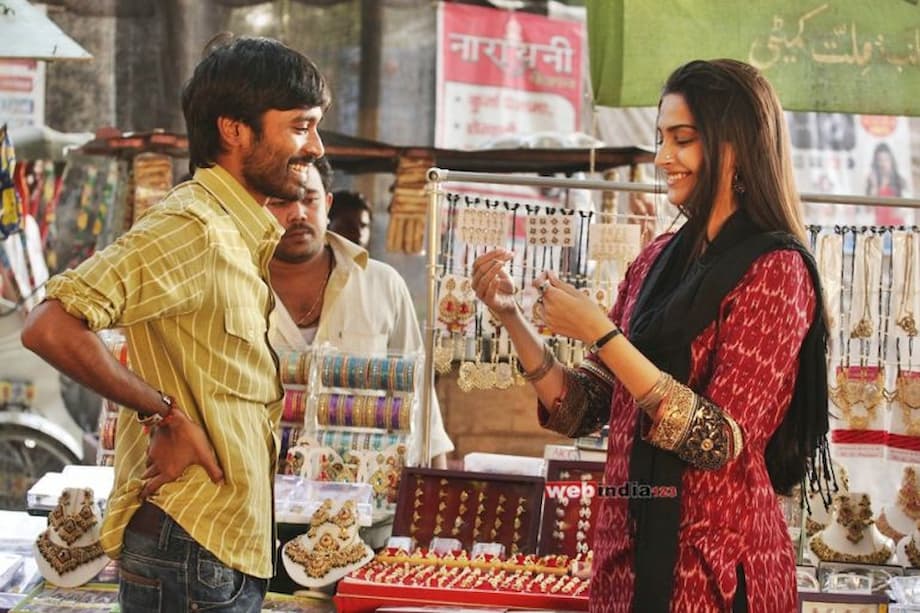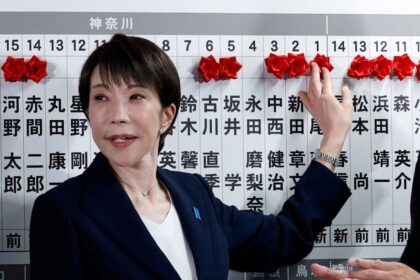The AI Revolution Meets Bollywood: A Cinematic Storm
In a move that has sent shockwaves through India’s film industry, Eros International, one of the country’s largest production houses, has re-released the 2013 romantic drama Raanjhanaa with an AI-generated alternate ending. The new version, titled Ambikapathy in Tamil, features a dramatic change: the male lead, Kundan (played by Dhanush), survives, overturning the original’s tragic conclusion. This unprecedented use of artificial intelligence to rewrite a film’s narrative has ignited fierce debate over creative rights, ethics, and the future of storytelling in Indian—and global—cinema.
The controversy has drawn in not only the film’s original creators but also prominent voices from across the industry, legal experts, and audiences, all grappling with the implications of AI’s growing role in the creative arts.
What Changed in Raanjhanaa—and Why?
Originally released in 2013, Raanjhanaa became a cult classic for its poignant portrayal of unrequited love, religious divides, and the heartbreak of its protagonist, Kundan, who dies in the film’s final act. The new AI-altered version, however, offers a more hopeful ending: Kundan survives, waking up in a hospital to the joy of his friends. This change, executed entirely through generative AI under human supervision, was made without the knowledge or consent of the film’s director, Aanand L Rai, or its lead actor, Dhanush.
Eros International has defended the move as a “creative reinterpretation” and a step toward exploring new storytelling dimensions with technology. The company’s CEO, Pradeep Dwivedi, described the alteration as an “exploratory baby step” and confirmed that Eros is evaluating its vast library of over 3,000 films for similar AI treatments. Posters for the re-release even tout the ending as “AI-powered,” though it remains unclear if such disclaimers appear within the film itself.
Industry and Audience Reactions: Outrage and Alarm
The reaction from the film’s original creators was swift and severe. Aanand L Rai, who learned of the change through media reports, called the move “heartbreaking” and a betrayal of artistic intent. Dhanush, the film’s star, issued a rare and emotional public statement:
“The re-release of ‘Raanjhanaa’ with an AI-altered climax has completely disturbed me. This alternate ending has stripped the film of its very soul, and the concerned parties went ahead with it despite my clear objection. This is not the film I committed to 12 years ago. The use of AI to alter films or content is a deeply concerning precedent for both art and artists. It threatens the integrity of storytelling and the legacy of cinema.”
Other industry figures echoed these concerns. Filmmaker Shoojit Sircar emphasized the need to protect artistic vision, stating, “All our lives go into protecting our art. If someone has a vision, everyone in the industry must safeguard it.” Bollywood actor and producer Farhan Akhtar also weighed in, declaring his loyalty to the creator: “If the creator of the film is unhappy about their work being changed, I will always support the creator.”
These sentiments were shared by fans and critics alike, many of whom saw the AI-altered ending as a betrayal of the original’s emotional impact and a dangerous precedent for the future of cinema.
Legal and Ethical Battleground: Who Owns a Film’s Soul?
At the heart of the controversy lies a complex legal and ethical debate: Who truly owns a film’s narrative—the producer who finances it, or the director and creative team who bring it to life?
Eros International claims that, as the primary rights-holder under Indian copyright law, it is within its legal rights to alter and re-release the film. The company argues that such reinterpretations are common in global cinema and that the original version remains preserved and widely available. Eros CEO Pradeep Dwivedi has framed the move as both a legal right and a creative innovation, likening it to past technological shifts in cinema, such as the transition from silent films to talkies or black-and-white to color.
However, critics argue that legality does not equate to ethicality. Aanand L Rai and Dhanush, supported by other filmmakers, insist that altering a film’s core narrative without the creators’ consent undermines the integrity of the work and the very notion of authorship. Rai has cited recent legal precedents, including a 2022 Supreme Court ruling affirming directors’ moral rights under Section 57 of the Indian Copyright Act, to support his position.
The dispute has escalated into legal threats, with Rai and Dhanush reportedly considering action to prevent further unauthorized alterations. Eros, meanwhile, has accused Rai of using the controversy to distract from ongoing corporate disputes and legal battles involving his production company, Colour Yellow Productions.
Historical Parallels: Creative Control in Bollywood
This is not the first time Bollywood has grappled with questions of creative control. Decades ago, the iconic film Sholay faced a similar controversy when its ending was changed by the censors without director Ramesh Sippy’s approval. Actress Hema Malini later expressed her displeasure, arguing that the director’s vision should be paramount. These historical echoes underscore how the tension between commercial interests and artistic integrity is as old as cinema itself—though the advent of AI adds unprecedented complexity to the debate.
The Rise of AI in Cinema: Promise and Peril
Artificial intelligence is rapidly transforming the global film industry. Until now, AI has been used primarily for technical enhancements—dubbing, CGI, visual effects, and even voice cloning. What sets the Raanjhanaa controversy apart is the use of AI to fundamentally alter a completed film’s narrative for commercial re-release, without the original creators’ involvement.
Proponents of AI in filmmaking argue that the technology can unlock new creative possibilities, streamline production, and offer audiences fresh experiences. Eros International maintains that its AI work involved significant human oversight, with editors and storytelling consultants ensuring the new ending fit within the film’s thematic and tonal constraints. The company is reportedly developing an internal AI and creative ethics framework, including clear labeling of AI-enhanced versions and preservation of original works.
However, critics warn that such practices risk eroding the unique vision of filmmakers, reducing art to a product that can be endlessly reconfigured for commercial gain. As director Aanand L Rai put it:
“The use of AI to retrospectively manipulate narrative, tone, or meaning without the director’s involvement is not only absurd, it is a direct threat to the cultural and creative fabric we work to uphold.”
Global Context: AI and Creative Rights Beyond India
The debate in India mirrors similar controversies in Hollywood and beyond. Recent years have seen heated disputes over AI-generated scripts, the use of actors’ likenesses, and the potential for studios to alter or even resurrect performances without consent. The Writers Guild of America and SAG-AFTRA have both fought for stronger protections against unauthorized AI use, recognizing the existential threat it poses to creative professions.
Film critic Sucharita Tyagi noted that most directors in India do not own the rights to their films, making them especially vulnerable to such interventions. The Raanjhanaa case, she argues, is a “watershed moment” that could shape industry protocols for years to come.
Broader Implications: The Future of Storytelling and Authorship
Beyond the immediate legal and commercial stakes, the Raanjhanaa controversy raises profound questions about the nature of storytelling, authorship, and the role of technology in art. If studios can unilaterally alter completed works using AI, what becomes of the director’s vision, the actors’ performances, and the emotional contract between a film and its audience?
Filmmakers like Shoojit Sircar and Farhan Akhtar argue that the industry must establish clear boundaries and protocols to protect creative expression. Ritesh Sidhwani, co-founder of Excel Entertainment, summed up the consensus among creators: “AI should be embraced and used effectively and appropriately, but not without the consent of the filmmaker.”
Meanwhile, Eros International’s willingness to apply AI to its entire back catalog signals that this debate is only beginning. The outcome of the current dispute may well determine whether India’s film industry becomes a global leader in responsible AI innovation—or a cautionary tale about the dangers of unchecked technological power.
In Summary
- Eros International re-released Raanjhanaa with an AI-generated alternate ending, sparking widespread controversy in India’s film industry.
- The film’s original creators, including director Aanand L Rai and lead actor Dhanush, condemned the move as unethical and a threat to artistic integrity.
- Eros claims legal rights to alter the film under Indian copyright law, but critics argue that creative consent and moral rights are being ignored.
- The dispute has escalated into legal threats and has drawn support for the creators from across the industry, including prominent filmmakers and actors.
- This is the first known case in Indian cinema where AI has been used to fundamentally alter a film’s narrative for commercial re-release.
- The controversy highlights broader concerns about the regulation of AI in creative industries, the protection of artistic works, and the future of authorship in the digital age.
- Historical parallels, such as the Sholay climax controversy, show that creative control has long been a contentious issue in Bollywood, but AI introduces new complexities.
- The outcome of this dispute could set important precedents for how AI is used in filmmaking, both in India and globally.












